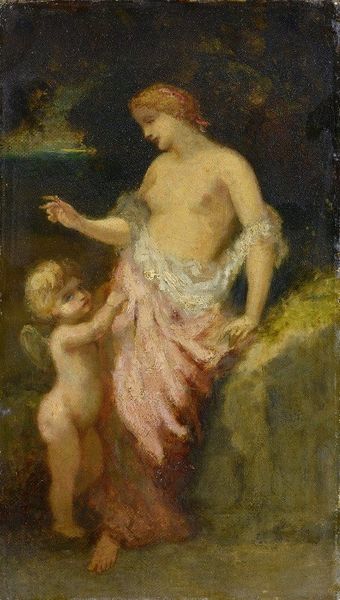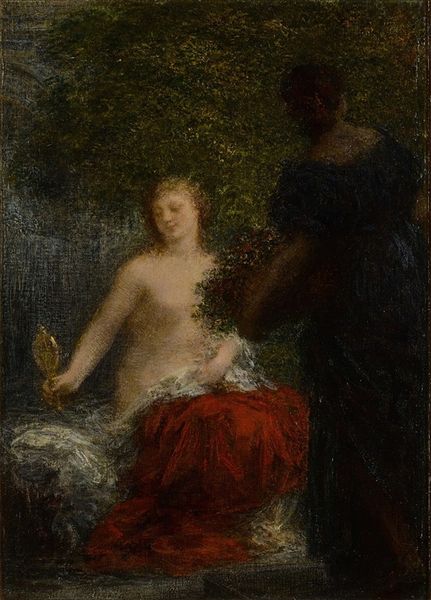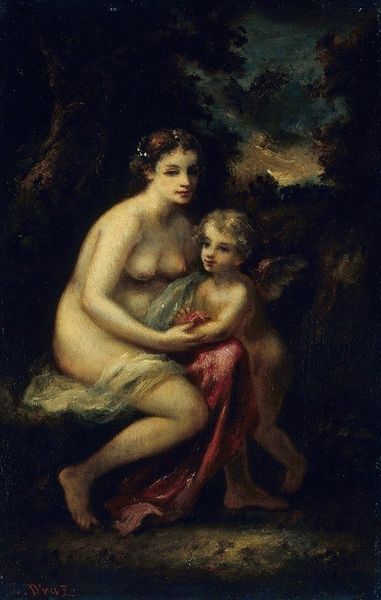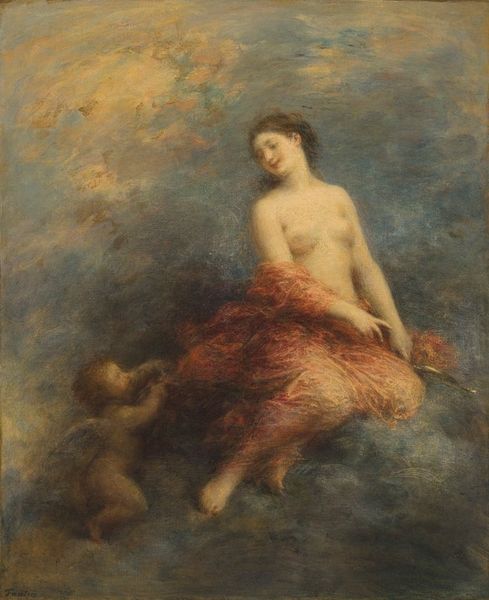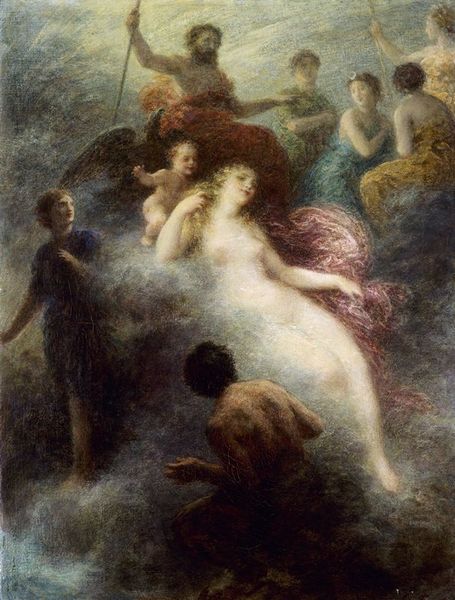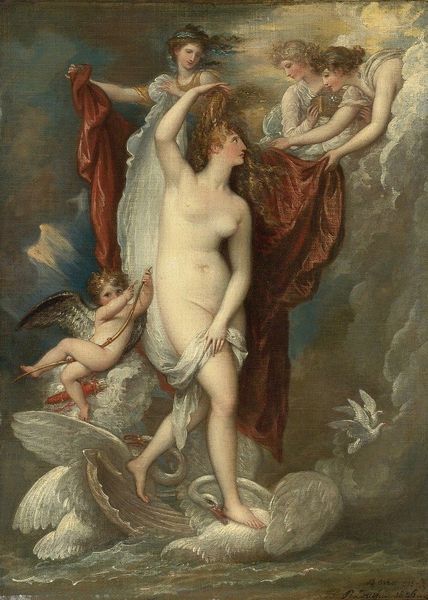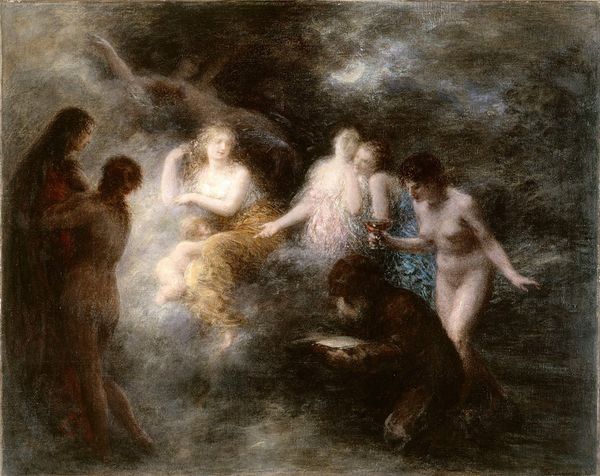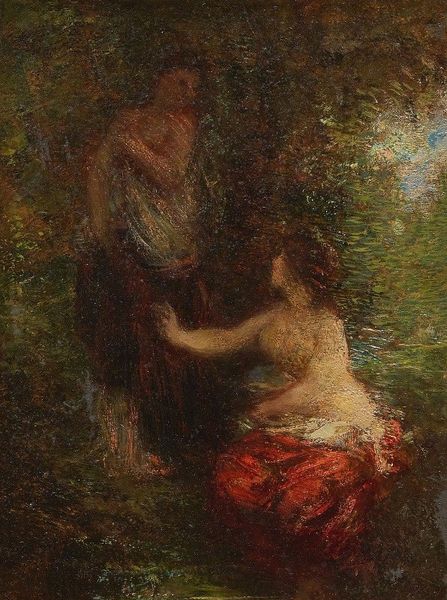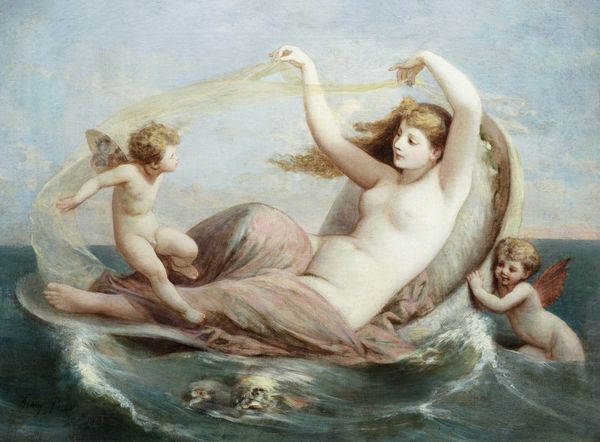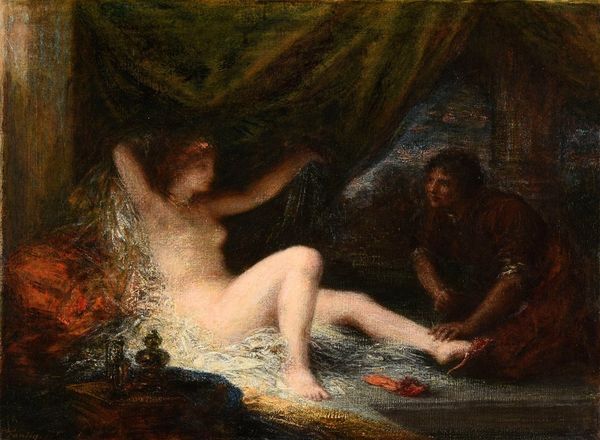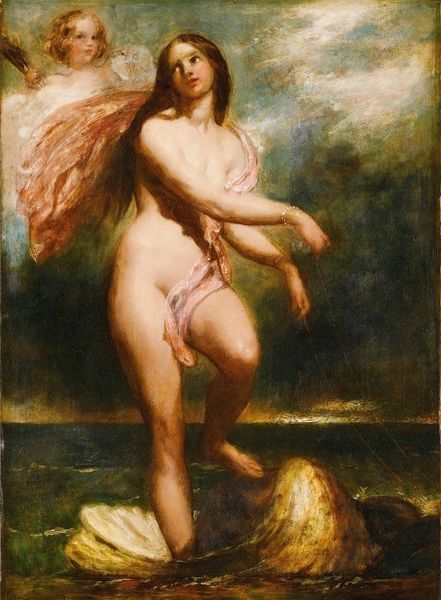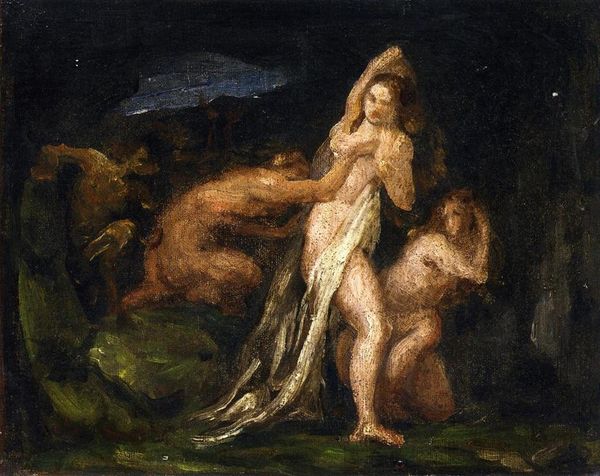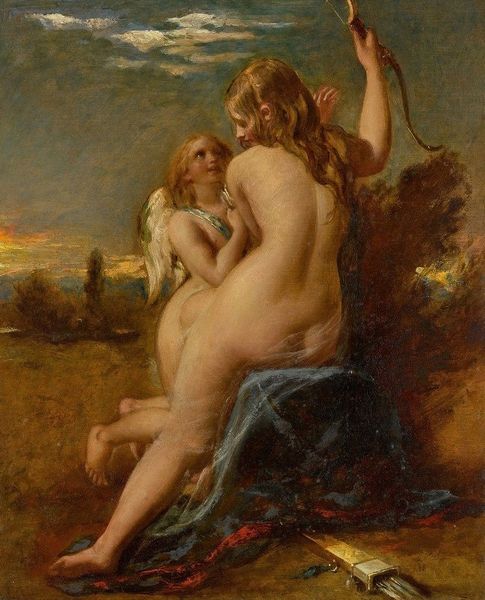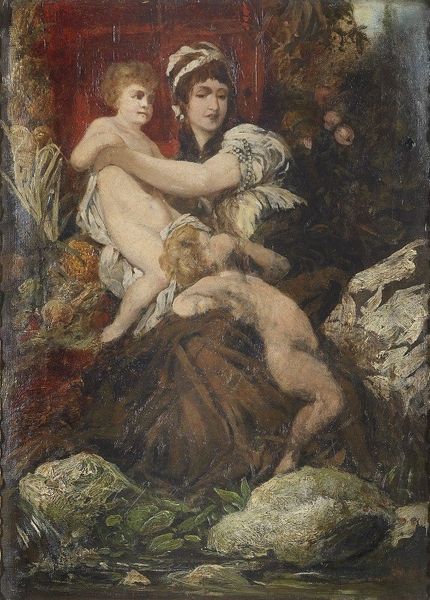
painting, oil-paint
#
portrait
#
allegory
#
painting
#
oil-paint
#
oil painting
#
romanticism
#
mythology
#
history-painting
#
nude
Copyright: Public Domain: Artvee
Editor: This is "Venus and Cupid," an oil painting by Henri Fantin-Latour. The first thing that strikes me is the dreamlike, almost hazy quality of the painting. It’s a very classical subject, but the execution feels surprisingly modern. How do you see this work, particularly within the historical context of its creation? Curator: It’s fascinating how Fantin-Latour engages with, yet subverts, traditional academic painting. He clearly knew his old masters. How could one ignore the history painting traditions, especially at the Salons? He’s not simply reproducing classical imagery. Instead, he seems to be questioning the very act of representation, and, crucially, the institutions like the Salon that validated such works. The female nude, for instance, was heavily policed – socially and artistically. Is Venus truly divine here, or just another model, gazed upon, scrutinized? Editor: That's a very good point. The positioning feels less about ideal beauty and more about, as you mentioned, the societal act of 'gazing.' The dark background feels less grand and more like a studio. What do you mean, exactly, by 'policed'? Curator: The policing refers to the tight controls over how the nude, particularly the female nude, was portrayed and consumed in art. It reflects societal anxieties around female sexuality and the artist's (often male) power in objectifying the subject. Did his style challenge such established social norms? Editor: That certainly seems plausible, especially if we view it through a contemporary lens of representation and power. So, in essence, the painting isn't just about mythology, but also a commentary on the art world of its time? Curator: Exactly! It’s a dialogue between artistic tradition and the burgeoning avant-garde, a critical engagement with the socio-political power structures that shaped artistic production and reception. Editor: That's a much richer interpretation than what I initially saw! I will definitely carry that in mind for all subsequent analyses. Thank you.
Comments
No comments
Be the first to comment and join the conversation on the ultimate creative platform.
